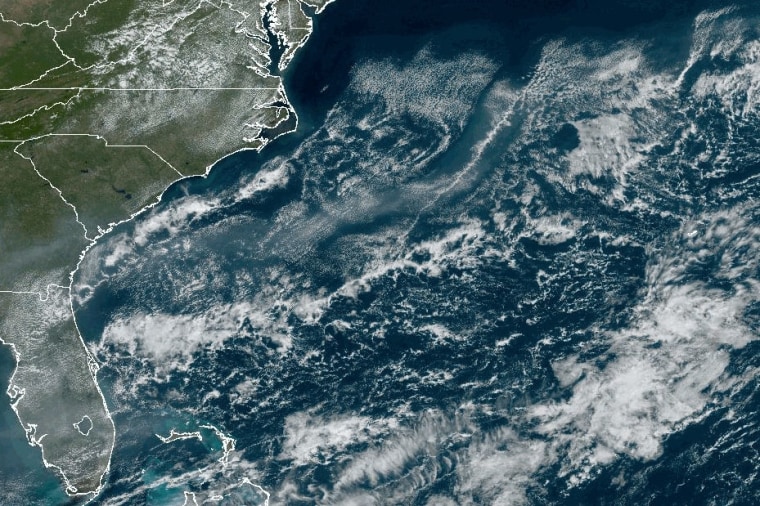A cloud of Canadian wildfire smoke smothered most of the Sunshine State in haze Tuesday, adding Florida to a list of U.S. states affected by a historic season of flames up north.
“I have lived in Florida for going on about 20 years and this is the first time I can remember seeing such a thick blanket of smoke,” said Will Ulrich, a warning coordination meteorologist for the National Weather Service in Melbourne, Florida. “For the past 24 hours, we’ve seen milky white, very hazy conditions across the peninsula.”
Air quality in some parts of the state hit “unhealthy” levels and the air carried a mild scent, Ulrich said. Visibility was also diminished.
The smoke originated in British Columbia and Alberta, Ulrich said, citing satellite imagery. It traveled thousands of miles to Eastern Canada by circulating winds and then was dragged southward by the remnants of Ophelia, as the storm petered out in the Atlantic Ocean.
The fact that smoke could travel thousands of miles from British Columbia to affect air quality in Florida illustrates how intricately connected the planet is and how environmental conditions far away can have a dramatic impact on daily lives.
This year qualifies as the worst on record for wildfire smoke exposure in the United States per person. In the future, these effects could worsen; researchers expect smoke to increase as wildfires become more likely and more intense because of climate change and a buildup of fuel across the landscape after decades of aggressive fire suppression policies across North American forests. Wildfire smoke is erasing decades of improvements to air quality in many U.S. states.
More than 69,000 square miles have been burned by wildfire in Canada so far, about 9 times the typical amount and more than 2.5 times the worst season on record, according to statistics from the Canadian Interagency Forest Fire Centre. Some 795 wildfires were still burning as of Tuesday afternoon, with about half of them considered “out of control.”
Wildfires have worsened in North America, in the past decade, in part because climate change is causing shifts to seasonal precipitation and making drought more likely. Earlier this year, researchers found that climate change made the fire season in Quebec — which was hit hard in June and July — at least twice as likely.
The smoke in Florida will linger through at least Wednesday morning before winds push it out over the Gulf of Mexico and it dissipates, Ulrich said.
Florida is not unaccustomed to wildfires, and it deals with localized smoke events with some regularity. Still, this was unique.
“We probably have to go back to 1998 to see an event that affected the entire state, and those were the big June and July wildfires that impacted portions of the central peninsula,” Ulrich said. “To have the entire state blanketed by smoke like this is, again, a pretty rare event.”
